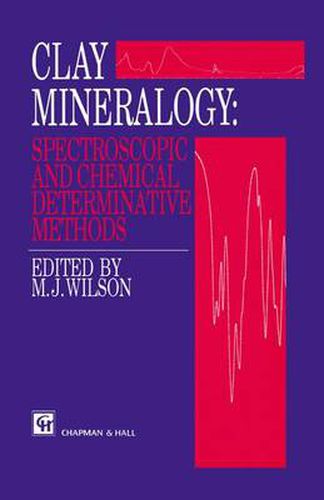Readings Newsletter
Become a Readings Member to make your shopping experience even easier.
Sign in or sign up for free!
You’re not far away from qualifying for FREE standard shipping within Australia
You’ve qualified for FREE standard shipping within Australia
The cart is loading…






This title is printed to order. This book may have been self-published. If so, we cannot guarantee the quality of the content. In the main most books will have gone through the editing process however some may not. We therefore suggest that you be aware of this before ordering this book. If in doubt check either the author or publisher’s details as we are unable to accept any returns unless they are faulty. Please contact us if you have any questions.
A knowledge of clay is important in many spheres of scientific endeav our, particularly in natural sciences such as geology, mineralogy and soil science, but also in more applied areas like environmental and mater ials science. Over the last two decades research into clay mineralogy has been strongly influenced by the development and application of a num ber of spectroscopic techniques which are now able to yield information about clay materials at a level of detail that previously would have seemed inconceivable. This information relates not only to the precise characterization of the individual clay components themselves, but also to the ways in which these components interact with a whole range of absorbate molecules. At present, however, the fruits of this research are to be found principally in a somewhat widely dispersed form in the scientific journals, and it was thus considered to be an appropriate time to bring together a compilation of these spectroscopic techniques in a way which would make them more accessible to the non-specialist. This is the primary aim of this book. The authors of the various chapters first describe the principles and instrumentation of the individual spectro scopic techniques, assuming a minimum of prior knowledge, and then go on to show how these methods have been usefully applied to clay mineralogy in its broadest context.
$9.00 standard shipping within Australia
FREE standard shipping within Australia for orders over $100.00
Express & International shipping calculated at checkout
Stock availability can be subject to change without notice. We recommend calling the shop or contacting our online team to check availability of low stock items. Please see our Shopping Online page for more details.
This title is printed to order. This book may have been self-published. If so, we cannot guarantee the quality of the content. In the main most books will have gone through the editing process however some may not. We therefore suggest that you be aware of this before ordering this book. If in doubt check either the author or publisher’s details as we are unable to accept any returns unless they are faulty. Please contact us if you have any questions.
A knowledge of clay is important in many spheres of scientific endeav our, particularly in natural sciences such as geology, mineralogy and soil science, but also in more applied areas like environmental and mater ials science. Over the last two decades research into clay mineralogy has been strongly influenced by the development and application of a num ber of spectroscopic techniques which are now able to yield information about clay materials at a level of detail that previously would have seemed inconceivable. This information relates not only to the precise characterization of the individual clay components themselves, but also to the ways in which these components interact with a whole range of absorbate molecules. At present, however, the fruits of this research are to be found principally in a somewhat widely dispersed form in the scientific journals, and it was thus considered to be an appropriate time to bring together a compilation of these spectroscopic techniques in a way which would make them more accessible to the non-specialist. This is the primary aim of this book. The authors of the various chapters first describe the principles and instrumentation of the individual spectro scopic techniques, assuming a minimum of prior knowledge, and then go on to show how these methods have been usefully applied to clay mineralogy in its broadest context.